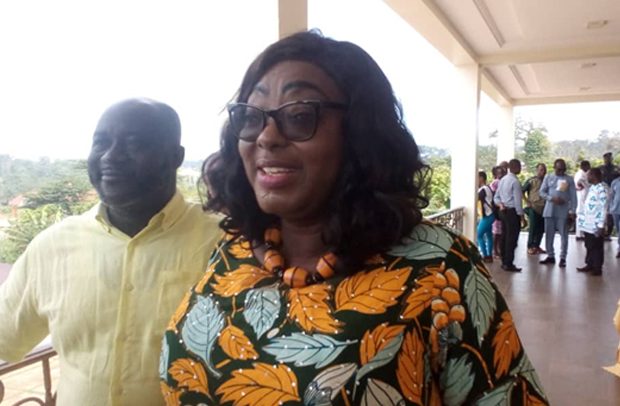Freda Akosua Prempeh
The Ministry for Sanitation and Water Resource as part of efforts to get holistic information (data) on Water, Sanitation and Hygiene ( WASH) services has held a three-day training workshop for district level staffs from six districts and municipalities in the Ahafo Region.
The district level staff benefiting from the training includes district environmental health officers, district planning officers, district statisticians and district information officers, district coordinating directors who supervise data collection process, questionaire analysis and coordination.
Addressing the participants, Minister for Sanitation and Water Resource, Freda Akosua Prempeh, stressed the need to track clean water and sanitation provision per the SDG goal six slated to be achieved by 2030.
According to the minister, data from 2021 Population and Housing Census indicate access to basic drinking water services in the country has increased from 78.0 percent in 2017 to 87.7% as at the end of 2021 while during the same time, access to basic sanitation facilities have also increased from 66% to 80.8 percent.
Dr. Freda Akosua Prempeh noted that with assistance from development partners, there have been several interventions to increase access to improved WASH services in the country.
She lamented that despite these strides, the sector still lacks a single short information system that brings together all efforts being made by various WASH actors for evidence based decision making.
“Data from the sector is fragmented and making harmonization a serious challenge,” she said.
The sector Minister who is also the Member of Parliament for Tano North said with the establishment of Sector Information System (SIS) it would bring together other systems such as District Monitoring and Evaluation System, Basic Sanitation Information System and Education Management Information System and district health information system for harmonized reporting and decision making.
The primary aim of the sector information system is to collect, manage and analyze critical data related to WASH to provide real time access to accurate data to inform policy decision making and address all governments major national and international reporting commitment on WASH she told the trainees and other participants.
She noted, “I am committed to evidence based policy and implementation that is data driven. This training workshop is thus to introduce MMDAs to the SIS architecture, train selected officers on data collection tools, protocols and mechanism and roles of responsibilities of district stakeholders.”
Ahafo Regionaj Minister, George Yaw Boakye, expressed his gratitude to the ministry for commencing the nationwide training.
“This initiative is to promote access to safe water, sanitation and hygiene services to about 84, 420 people by 2030. We are happy all the six districts and municipalities in the region have benefited,” he added.


